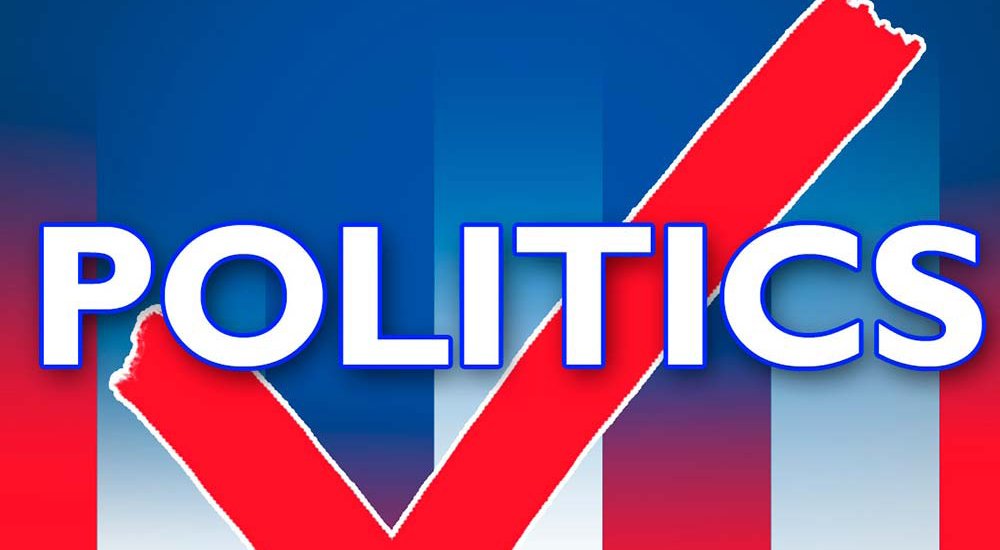The election is over. I am left with two very contradictory feelings.
First is one of appreciation — every four years we peacefully replace our government.
I remember my parents in the late 1970s discussing Soviet politics at our house with their close friend. Their friend said something anti-Soviet. I vividly recall the fear in my mother’s eyes when she realized I had overheard that part of the conversation.
Views that were contrary to “politics of the party” were not tolerated. If I repeated in kindergarten what I had just heard, my teacher could report it to authorities and my parents (not me) would get in trouble.
A six-year-old kid could have only heard this sort of anti-Soviet talk at home: TV, radio, and newspapers were a pro-Soviet propaganda machine. My parents would not have been sent to the gulag, but they could have lost their jobs. If this sounds farfetched, my father’s best friend, a colleague and professor at Murmansk Marine Academy, was fired for possession of anti-Soviet propaganda — a copy of Solzhenitsyn’s Gulag Archipelago. It took him years to get another job, and it was almost two decades later, when the Soviet Union fell apart, that he was finally able to get a decent teaching job.
We in America tend to take our democratic elections for granted and underappreciate the fact that we can openly express our views. But there is also the other, new feeling: disgust. Yes, disgust. There is something deeply wrong with the U.S. election process. Between the presidential candidates and the congressional races, billions of dollars were spent (wasted) on the election. To spend that kind of money, first you have to raise it. Politicians sell their souls and beliefs to whomever will give them the most money.
And here is the sad truth: If you don’t raise money, the other guy will, and then he can outspend you. He can slaughter you, as his lies will be amplified louder through TV and radio ads, and the victory will be his. As I am writing this, I am realizing that allowing politicians to spend unlimited amounts of money on campaigns is not unlike allowing steroids in sports — even the strongest athlete will lose to a weaker opponent who is pumped on steroids.
Also, this election process will turn even a very honorable person into a liar or half-truth teller, because it is impossible to express complex ideas in 30-second sound bites. Even during the presidential debates, where candidates were allowed a few minutes to make their case, every claim that each of them made had to be fact-checked the next morning. We must be scratching an all-time low in politics when we feel the need to fact-check the statements of the candidates running for the highest office in the land, the president of the United States, the office that should be the moral compass for the country. If we accept lies and half-truths from them as politics as usual, what do you expect from just a mortal senator or a congressman?
The partisan politics of this country is simply insane. I observed both Republican and Democrat friends, who are otherwise rational people whom I deeply respect, turning into mindless robots when the conversation turned to politics. It seemed that their cognitive abilities had been wiped and replaced by a party program as they mindlessly repeated half-truths and lies propagated by the party mother ship, without any critical thinking of their own. It was scary.
But there is a silver lining to U.S. politics. Call me a disillusioned optimist, but no matter what the outcome of the election, this country has survived and will continue to survive bad congressmen, bad senators, and even bad presidents.
Here is the irony of the above: I wrote that piece exactly four years ago about the Obama/Romney election. I never thought that I was describing what, four years later, we’d consider the good ol’ days.
Thoughts on Trump’s presidency:
If Hillary Clinton had been elected, her presidency would have provided a fairly narrow band of outcomes — basically a continuation of the past eight years. (I’ll let you, Dear Reader, be the judge of whether that would have been good or bad.)
Potential outcomes for the Trump presidency fall in a much wider band. Probable outcomes are relatively narrow for domestic policy and a mile wide for foreign policy.
We tend to think of the American president as a very powerful person. However, that is only true when it comes to foreign policy, when the president acts as commander-in-chief. Regarding domestic policy, the brilliance of the Constitution is that it puts significant limits on what the president can do.
For instance, even though Republicans control the Congress, they lack the 60 votes to break filibusters and invoke cloture. Thus, though Trump’s party may diminish Obamacare, they may not have the ability to repeal it altogether. In the case of domestic policy, Trump is pretty much just another Republican president whose effectiveness will be helped by Republican control of Congress — but at the same time may potentially be restricted by the new president’s own negotiating skills and his lack of political experience.
When it comes to foreign policy and trade, the range of outcomes becomes incredibly wide. First, we don’t know who Trump the commander-in-chief really is. Is he Trump the candidate, who would say brash and simply idiotic things — or the very calm, presidential person who delivered a brilliant acceptance speech? Will he make the world a safer or a more dangerous place?
I don’t have an answer for that question. Just as with predictions for the outcome of this election, it seems that no one does.









0 comments